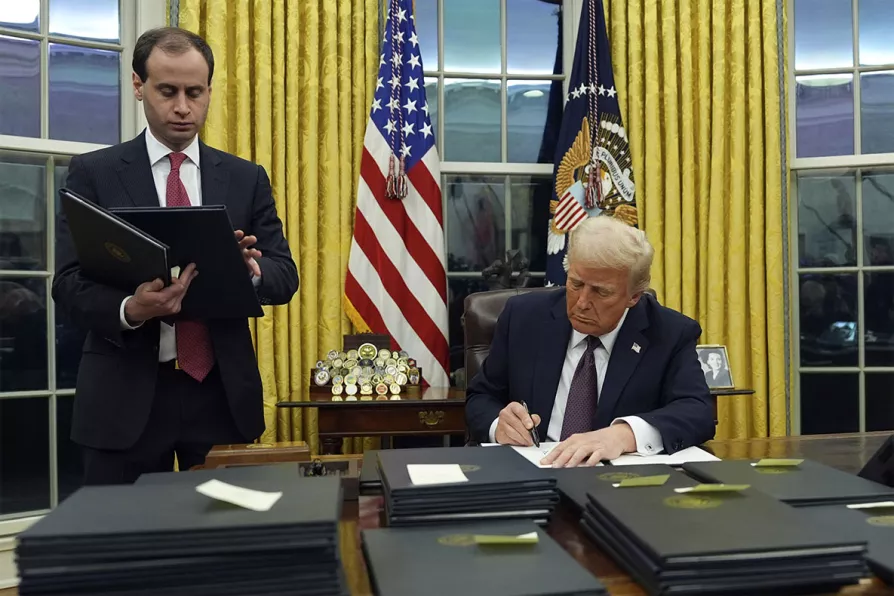
 President Donald Trump signs an executive order regarding the southern border in the Oval Office of the White House, January 20, 2025, in Washington
President Donald Trump signs an executive order regarding the southern border in the Oval Office of the White House, January 20, 2025, in Washington
US PRESIDENT Donald Trump was due to sign legislation into law last night that mandates the detention and potential deportation of undocumented migrants accused of theft and violent crimes — without any need for a conviction.
The measure, known as the Laken Riley Act, swiftly passed the Republican-controlled Congress with some Democratic support, despite human rights campaigners highlighting how the law could lead to the mass rounding-up of people for minor offences such as shoplifting.
Mr Trump has made a promised crackdown on undocumented people the centrepiece of his political career. He is now suggesting that the new law might only be the beginning.

The Trump government is seizing overseas students from their homes and campuses and even off the streets, with no legal grounds and no due process, writes LINDA PENTZ GUNTER













